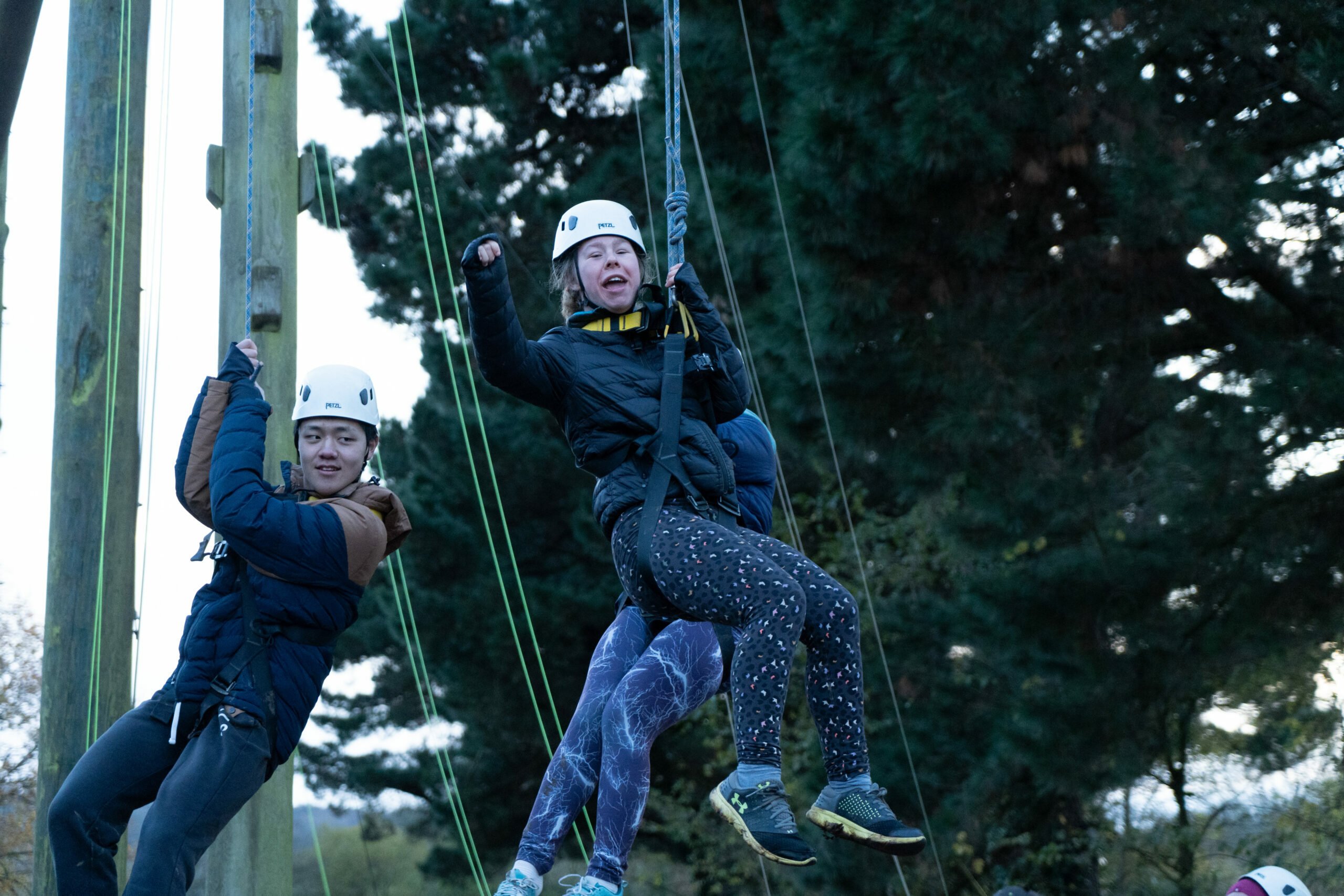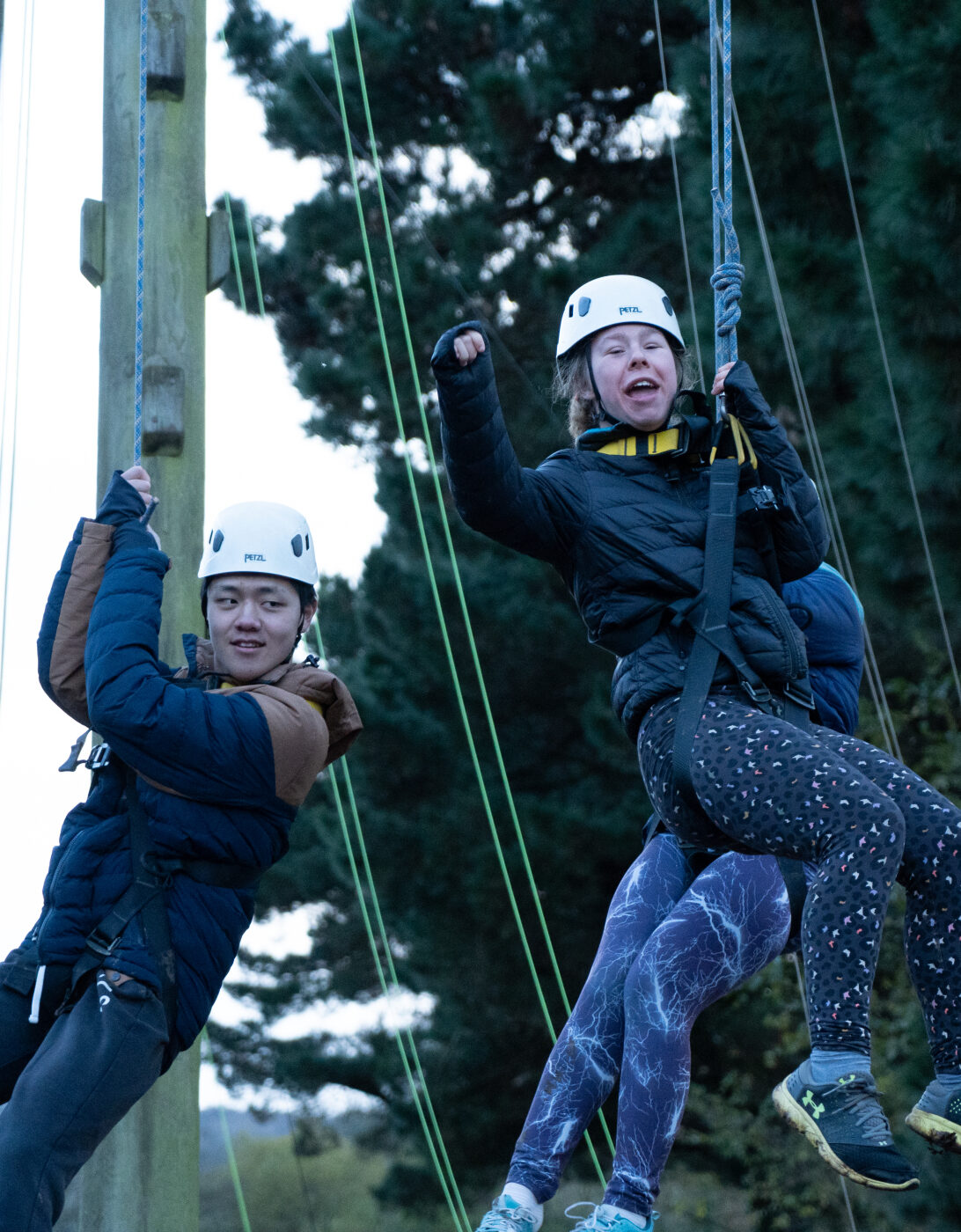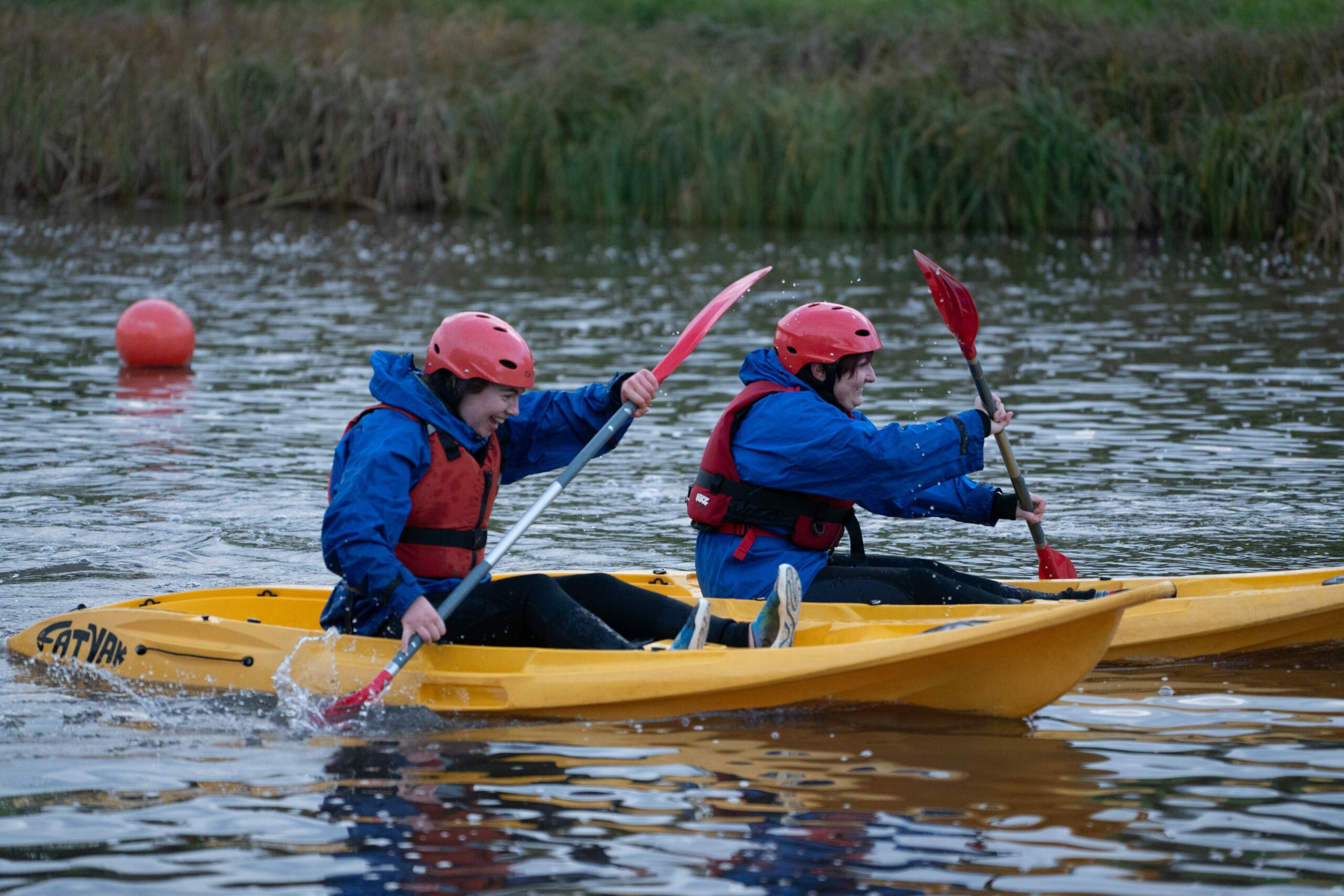

Understanding the Residential Requirements
Here, we’ve listed each requirement alongside some additional information to help organisations provide residentials that meet the DofE’s requirements.
There are ways these residential requirements can be flexed to suit individual needs, so as an organisation, you should consider the opportunities you can offer with these flexibilities in mind.
AAPs are expected to adhere to best practices and meet all the requirements of the Residential section, as committed to in the licence agreement.
For five-day residentials, participants should start before noon on the first day and finish after 3pm on the final day. It would be acceptable for these timings to be moved to accommodate different travel options or when beneficial to the programme.
Offering a two-block split could be a popular choice for those in employment. Instead of prescribing specific timings for a two-block split, it’s beneficial for the provider to determine what works best for their programme. A traditional residential is at least 100 hours and this should be split into two roughly equal parts. Each period should involve at least two nights, within a 12-month period, to ensure a meaningful experience. This doesn’t have to be confined to weekends; it can be scheduled over any two periods, such as Saturday to Monday during bank holidays. The goal is to provide a valuable and fulfilling residential experience by allowing flexibility in how the hours are distributed, creating a programme that best supports participants’ development and growth.
There should be a theme and shared activity that’s consistent across a split residential. An Assessor should be able to support a participant through the whole section and help them get the most from the activities they undertake. If possible, the other staff and participants, including the Assessor, should remain the same. However, provided the theme and activities remain consistent, it would be acceptable for the participants, staff, and Assessor to be different if it’s not possible to bring the same people together again for the second part of the residential. In this case, two separate Assessor Reports should be uploaded.
Participants should complete their residential away from their home or other locations where they have already undertaken their DofE activities.
Safeguarding procedures on shared sleeping arrangements must be included, taking into consideration:
- Mixed sex groups
- Those attending who are under 18
- Those attending who are over 18
- Those who don’t identify as the gender they were assigned at birth.
Organisations should be providing separate accommodation for under and over 18s unless it’s practically not possible.
Individual needs should be discussed in advance so they can be accommodated. Examples include:
- Accessible toilet and bedroom
- Space for quiet time.
We strongly advise against homestays, particularly for under-18s or vulnerable adults, due to the safeguarding and wellbeing risks involved. However, it’s the young person (or parent/carer), along with the organisation, who are responsible for checking the safety and suitability of sleeping arrangements. We’ve included some safety tips in our participant information and expect organisations to include comprehensive information on accommodation.
It’s important that consent is gained from parents/carers/guardians if participants are under 18 or for vulnerable groups who are over 18.
- Shared purposeful activities should be more than just the replicated activities of a paid staff member. Organisations should consider how the outcomes of the section can be met through a meaningful shared activity.
- Organisations should consider the purposeful activities they can provide during both the day and evening. A clear timetable should be shared with the participant in advance. The timescales should be guided around the specific activity and individual needs of those on the residential.
- Participants must not receive payment for completing their residential; however, they may receive money for expenses. Expenses include costs directly related to participating in the residential experience. These could cover accommodation, meals, travel, activity fees and specialist equipment required to participate in the residential. This doesn’t include wages or bonuses based on performance or other criteria.
- Residentials based around work experience or internships may be acceptable providing they are planned to meet all the Residential Requirements. Participants should not be replacing a paid staff member and should not receive payment.
- This requirement applies to every participant. No individual should join a group where the majority already know each other.
- It’s acceptable to know up to 50% of participants, but providers should feel empowered to plan their group composition in a way they feel best meets the outcomes of the section and provides a good residential experience for all attending. This percentage is included to increase access to the section, particularly for those who experience marginalisation, ensuring providers can offer low-cost opportunities without having to restrict numbers.
- This percentage should not be treated as a target. Strictly adhering to it could risk some participants failing to meet their outcomes if others drop out after registration. While some situations will inevitably be beyond an organisation’s control, processes should be built into registration to minimise these risks – for instance, requesting the details of participants’ DofE centres in advance.
- Splitting participants into different subgroups can allow for better mixing with new people and enable residentials to better meet the outcomes of the section.
- Organisers would be expected to create opportunities for all participants to experience an element of shared and purposeful activity with people they don’t know.
Participants can do different activities at points in the residential, providing they have a shared goal or theme. The activities must be linked in some way and allow them to interact as a group in a way that still meets the outcomes of the section.
Not everyone on the residential needs to be enrolled in the DofE programme or even be of DofE age. However, everyone must be taking part in the same shared experience.
Splitting participants into subgroups away from known staff members allows for better mixing with new people and enables residentials to better meet the outcomes of the section.
- Organisations should provide full details of the residential to participants in advance, including training, costs and any other information to be aware of.
- Organisations that offer funding (such as bursaries or discounts) should share this information with the participant before booking.
- It’s acceptable for participants to meet through training opportunities prior to the residential.
- Someone within the organisation could act as an Assessor, providing they meet the requirements. More information about being an Assessor can be found here.
- The Assessor’s Report should be personalised and contain enough detail that confirms the residential meets the Residential Requirements and the participant achieved their personal goals.
- Assessors’ Reports should be submitted in a timely manner, ideally within a few weeks.
- If splitting a residential into two, there should be a consistent Assessor across both blocks who can support a participant through the whole section, or two Assessors’ Reports should be uploaded.
These include:
- Participants can request downtime away from activities
- Carers are allowed
- Participants with specific individual needs can attend with their Leaders.
The flexibilities should reflect a participant’s individual needs and should be discussed and agreed before approval.
Any flexibilities should also be in keeping with the aim, principles and outcomes of the Residential section.
- Leaders can approve a participant’s request for reasonable adjustments, but they will still need to ensure that the participant’s chosen provider can accommodate these.
- Residential providers shouldn’t make judgements on any pre-approved adjustments for this section, unless it affects their ability to provide a safe residential for the participant. The assumption should always be that this adjustment has been approved as a way for individuals to access the section.
- Where an individual needs to be given downtime away from shared activities, care should be taken to ensure this can be accommodated. Ideally this adjustment should be agreed in advance, but there may be occasions where a participant needs to request downtime at short notice. If an individual has taken time away from shared activities, this time will not be considered in any way when measuring their overall participation.
- Participants with additional needs can attend as a group and may be accompanied by staff or carers if necessary. Staff or carers can be included in the group numbers if they also plan to participate in the activities.
- Participants attending in a group are still expected to meet the outcomes of the section, e.g., meeting new people, developing the confidence to thrive in an unfamiliar environment. Leaders need to plan how they can achieve these outcomes if participants are attending with a known group.
- Organisations should ask that any adjustments have been approved by their Leader and Licensed Organisation.
- Participants completing their Awards within Secure Estates can complete their residential as a group with their Leaders. The crucial aspect is ensuring an element of unfamiliarity, which might come from the staff involved, the activities undertaken, the location chosen, or the people they interact with during the residential.
For some young people, staying overnight is a barrier they are unable to overcome. In this circumstance, DofE Operations Officers can support you to explore all potential flexibilities before looking at the option of the participant returning home to sleep.



 DofE has been extraordinary!
DofE has been extraordinary!

